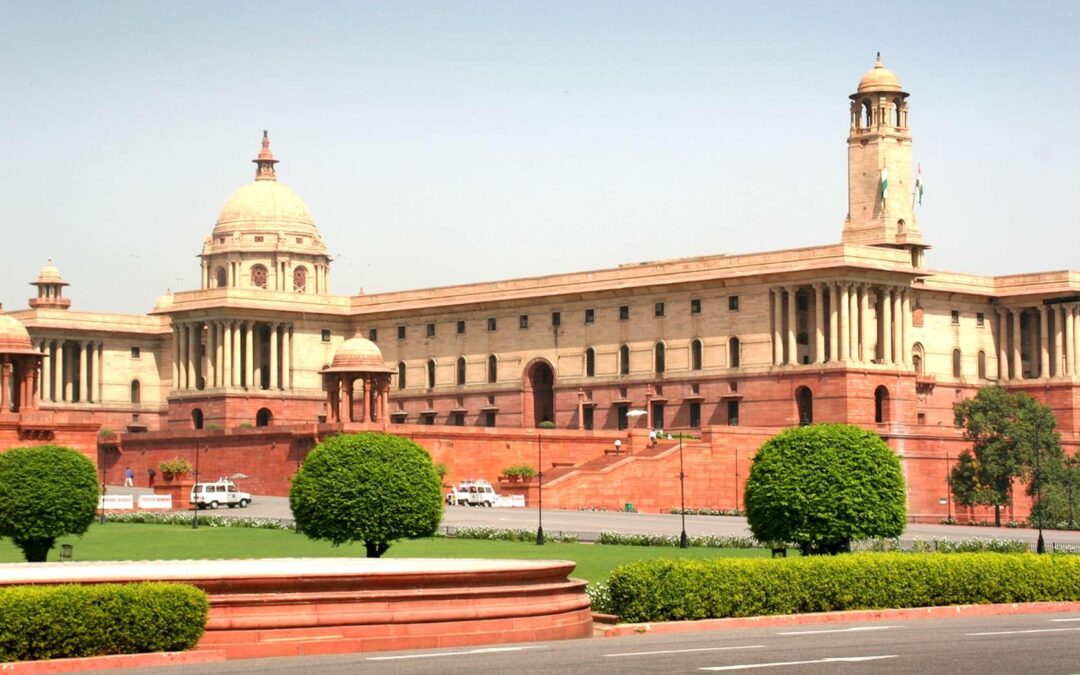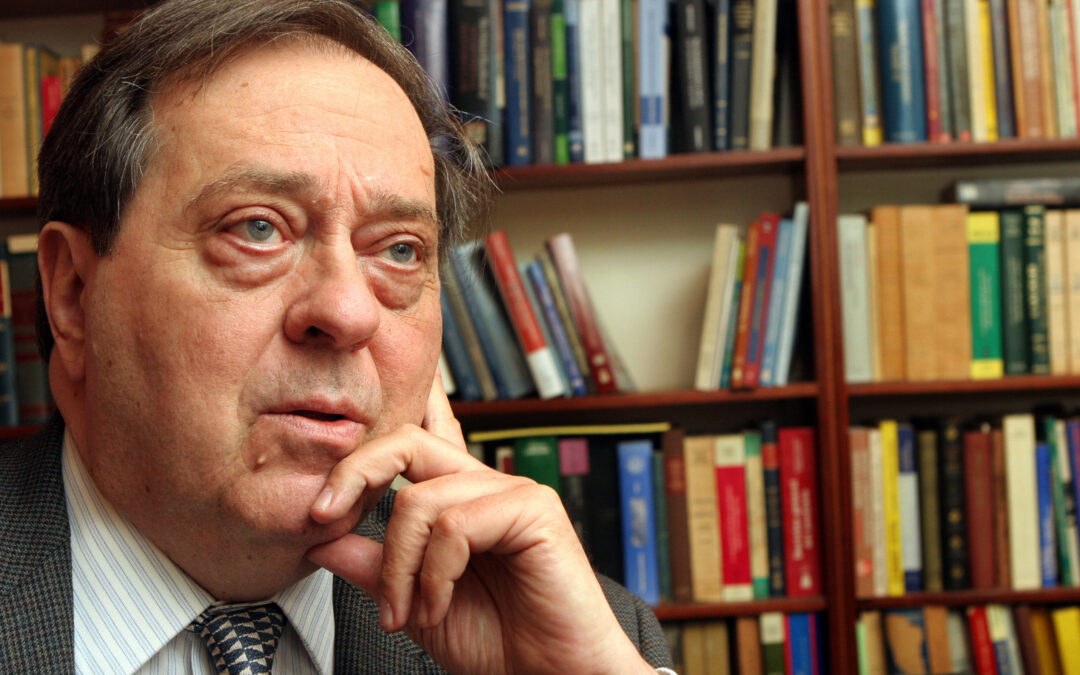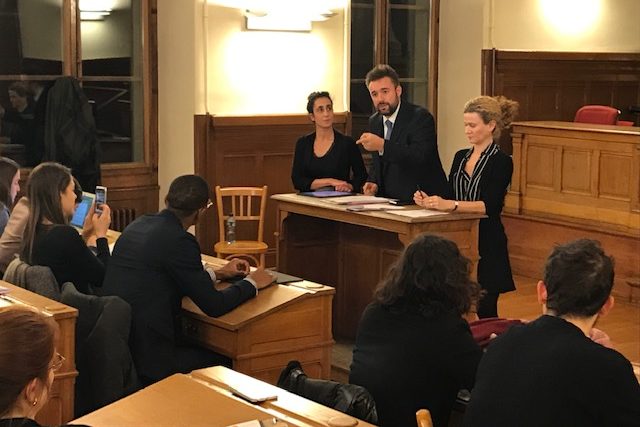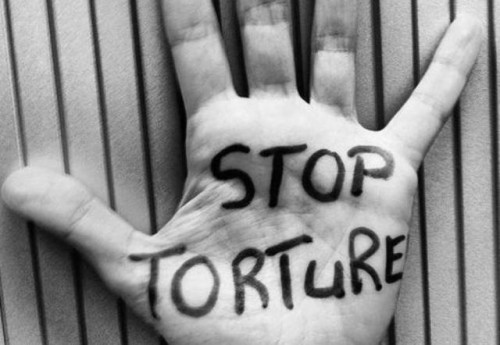
Dec 11, 2019 | News
The ICJ today condemned The Citizenship (Amendment) Bill 2019 passed by the Rajya Sabha (upper house of the Indian Parliament) on 11 December 2019, after the Lok Sabha (lower house of the Parliament) adopted it on 9 December.
The ICJ calls on India to reconsider and repeal, or substantially amend, the Bill to bring it in line with international legal obligations and Indian Constitutional principles.
“The implementation of this proposed legislation would violate core principles of non-discrimination, equal protection of the law and freedom of religion, guaranteed under international law and the Indian Constitution,” said Frederick Rawski, ICJ’s Asia Director.
The Bill amends the Citizenship Act, 1955, which governs questions of citizenship and aspects of lawfulness of migration status in India. While it purports to provide protection and shelter to religious groups such as Hindus and provides them paths to citizenship, it excludes from its ambit certain religious groups such as Muslims.
The Bill gives protected status to Hindu, Sikh, Jain, Parsi, Buddhist and Christian migrants from Pakistan, Afghanistan and Bangladesh, all Muslim-majority countries, who entered India on or before 31 December 2014. Similarly situated Muslims are categorized as “illegal migrants”.
Furthermore, the Bill provides to the above-mentioned religious communities and countries an expedited route of citizenship giving them the opportunity to be eligible for citizenship by naturalization if they have lived or worked in India for six years, as opposed to twelve years, as otherwise required.
“The Citizenship (Amendment) Bill creates two tiers of citizenship and migration status in India based on religion, with Muslims relegated to the lower end,” added Rawski. “This Bill, which entrenches discriminatory practices into law, must not be implemented unless substantially amended to provide for equal protection for persons of all religions or other status.”
The legal framework for citizenship identified by this Bill is incompatible with bedrock rule of law and democratic principles. It is highly discriminatory and arbitrary, and manifestly fails to satisfy the State’s obligations under international human rights law, including the International Covenant on Civil and Political Rights (ICCPR), to which India is a party.
The arbitrary inclusion of some groups while excluding others violates Article 14 of the Indian Constitution and Article 26 of the ICCPR. India’s international obligations require that its regulation of citizenship under domestic law be compliant with the principle of non-discrimination, equality before the law, and equal protection of the law without discrimination on the grounds of, inter alia, race, religion, or ethnic or national origin. This Bill, which provides for differentiated criteria for citizenship and other legal protection based on membership of religious group, complies neither with international law nor Indian constitutional law.
The arbitrary inclusion of some groups while excluding others would only be permissible under Article 14 of the Indian Constitution and Article 26 of the ICCPR if the classification is founded on an intelligible differentia between the group excluded and the group that is included, and (ii) the differentia has a rational relation to the objects sought to be achieved by the Act.
The Bill claims religious persecution as the ground of reasonable classification, but then arbitrarily excludes several similarly situated and widely persecuted religious minorities such as Ahmediya Muslims and Shia Muslims from Pakistan and Bangladesh, Rohingyas from Myanmar, Hazaras from Afghanistan from its protective ambit. It therefore does not meet these criteria under the Indian Constitution and international law.
The adoption of the Bill comes as the Ministry of Home Affairs of the Indian Government issued a directive on August 8, 2017 to state governments to “identify and deport” 40,000 Rohingya refugees from Myanmar, which has led to deportation of 7 Rohingya men to Myanmar already.
In addition, the Indian Government has indicated that it will pursue nationwide National Register of Indian Citizens, which will likely exclude numerous people, many also Muslim, who should be recognized as Indian Nationals. A similar exercise undertaken in Assam earlier this year was an arbitrary and discriminatory process that rendered some 1.9 million people stateless. This violates international law and standards which protects the right to nationality and safeguards against statelessness.
Contact
Frederick Rawski, ICJ Asia-Pacific Director, t: +66 64 478 1121; e: frederick.rawski(a)icj.org
Maitreyi Gupta, ICJ India Legal Adviser, t: +91 77 560 28369 e: maitreyi.gupta(a)icj.org

Dec 10, 2019 | News
The ICJ mourns the loss of Professor Pedro Nikken, former President and Commissioner of the ICJ. Prof Nikken was elected ICJ President in January 2011, succeeding Mary Robinson (2008-2010) and followed by Nigel Rodley (2012-2017).
“Pedro Nikken left a tremendous legacy of respect for the rule of law and defense of human rights in his homeland of Venezuela, across Latin America and around the world,” said Prof Robert Goldman, the ICJ’s President.
“ Like so many others, I have lost a cherished friend and mentor whose company I will greatly miss,” he added.
Prof Nikken was a former Judge (1979-1989) and President (1983-1985) of the Inter-American Court of Human Rights. He served as UN Independent Expert on El Salvador from 1992 to 1995 and from 1990-1992 he served as Legal Adviser to the UN Secretary-General on El Salvador’s peace process.
In 1995 he served as Special Envoy of the UN Secretary-General to Burundi. He is former Dean and Professor (emeritus) at the Law School of the Universidad Central de Venezuela.
He was also former President and Permanent Counselor of the InterAmerican Institute of Human Rights. He was a Member (Chair N° 9) of the Venezuelan National Academy of Political and Social Sciences.
“Prof Nikken helped drive the ICJ’s work in pursuit of justice and accountability, particularly through regional human rights systems such as the Inter American Court of Human Rights, even as various governments tried to weaken the process and evade responsibility,” said Sam Zarifi, ICJ Secretary General.
“Pedro was indefatigable as a human rights defender and unsurpassed in the quality of his legal analysis, a rare combination of qualities that made him a role model for several generations of human rights lawyers around the world,” he added.
Pedro Nikken was born in Caracas, Venezuela in 1945. He graduated in 1968 from the Andres Bello Catholic University and obtained a diploma of higher studies in law at the Pentheon-Assas University (Paris II) and a doctorate in law from the University of Carabobo.

Dec 10, 2019 | Multimedia items, News, Video clips
Today, the ICJ launched the animated video titled “UN Committee Recommends Socio-Economic Rights Protections in South Africa” in commemoration of International Human Rights Day, at an event sponsored in collaboration with local partner Lawyers for Human Rights (LHR).
With support from the European Union (EU), the ICJ and LHR have been jointly implementing a project promoting the protection of Economic, Social and Cultural Rights (ESCR) over the last three years.
The project included workshops co-ordinated by the ICJ and LHR on the protection of ESCR with magistrates, lawyers, paralegals and civil society organizations. As part of the project published a detailed Guide for the Legal Enforcement and Adjudication of Economic, Social and Cultural Rights in South Africa to assist legal practitioners, including magistrates, lawyers, paralegals and civil society, in understanding and applying international and domestic legal standards relating to ESCR. The ICJ also joined other local and international organizations in making submissions to the UN Committee on ESCR, which ultimately informed the Committee’s recommendations to South Africa.
During the event 10 December event in Pretoria, the LHR launched the documentary “Everyone Lies to Popo Molefe”, which tells the true story of the community’s struggle to basic services. Members of the Popo Molefe community were guests of honour at the event, which was also attended by a representative of the South African Human Rights Commission.
“If we can have roads, water and electricity… We are struggling without electricity. This situation we are living in is not good. I wish the President could see this documentary,” Popo Molefe Community Leader Kgomotso Susan Nkolisa said.
The ICJ’s animation explains in simple terms the recommendations made by the UN Committee on Economic, Social and Cultural to the government on South Africa.
These recommendations are based on the international standards and protection of the rights contained within the International Covenant on ESCR ratified by South Africa in 2015.
The animation uses illustrative examples of South Africa’s obligations under the Covenant relating to housing, education and just and equitable wages, urging viewers to hold government accountable for the implementation of the UN Committee’s recommendations.
Watch the animation

Dec 10, 2019 | Articles, Nouvelles
Dans le cadre de l’International Cooperation Initiative entre l’ICJ et le barreau de Genève, une conférence, à laquelle ont assisté des avocats genevois, s’est tenue ce soir au Palais de Justice sur le thème: “Le délit de solidarité en droit Suisse, européen et mondial”.
Massimo Frigo, conseiller juridique principal du programme Europe et Asie centrale de l’ICJ a présenté cette question complexe au regard des protocoles existants des directives européennes et la réticence des États de l’UE à les respecter.
Il s’agissait de la première d’une longue série de collaborations sur des sujets d’intérêt commun entre l’ICJ et la communauté juridique genevoise.

Dec 10, 2019 | News
The pervasive practice of torture and other ill treatment can only be addressed if the States in the region ensure perpetrators are held accountable in line with international standards, said lawyers and activists from Bangladesh, India, Nepal, Pakistan and Sri Lanka.
The call came at a regional conference on the investigation and prosecution of torture and other ill treatment in South Asia, organized by the ICJ ahead of Human Rights Day.
“Governments in South Asia have done very little to support the victims and survivors of torture and other ill treatment, or to ensure their rights to truth, justice and reparation,” said Frederick Rawski, ICJ’s Asia Director.
“Despite the persistence of the practice, Governments have failed to follow their legal obligation to treat these crimes as the serious human rights violation they are,” he added.
Torture and other ill treatment are prevalent in South Asia, and in some countries widespread and systematic, with perpetrators enjoying impunity for the crime.
According to the ICJ, States in the region continue to deny the pervasiveness of torture, use torture as a deliberate tool to control and punish dissent, fail to enact specific legislation to criminalize torture, and where a special law exists, fail to implement it in good faith.
Consequently, there have been few concerted efforts to hold perpetrators of torture and ill treatment to account.
All too often, perpetrators get away with only disciplinary sanctions, and even when prosecutions happen, they do not result in convictions and commensurate penalties.
Suspects are often lower or middle-ranking public officials rather than their superiors, who are charged with lesser crimes than torture, such as assault, battery, coercion or abuse of office that carry relatively low punishments.
Prosecutions frequently fail because of the difficulties to prove torture, including securing witnesses for the prosecution, inadequate or conflicting medical evidence as well as threats of reprisals influencing victims and witnesses.
Even when such hurdles are overcome, immunities that protect public officials from prosecutions allow perpetrators to escape accountability.
Furthermore, military and intelligence agencies have extensive and unaccountable powers, including for arrest and detention, which facilitate the practice of torture and other ill treatment.
Under international law, States must ensure protection against torture and other cruel, inhuman or degrading treatment or punishment.
Whenever there are reasonable grounds to believe that torture has been committed, States are required to investigate allegations competently, impartially, independently, promptly and thoroughly.
While a comprehensive set of reforms, both in law and policy, is required to prevent and combat torture and other ill treatment – ensuring accountability for perpetrators would be a first step, said the ICJ.
Contact:
Frederick Rawski (Bangkok), ICJ Asia Pacific Regional Director, e: frederick.rawski(a)icj.org
Reema Omer, ICJ International Legal Adviser for South Asia (Lahore), t: +923214968434; e: reema.omer(a)icj.org









